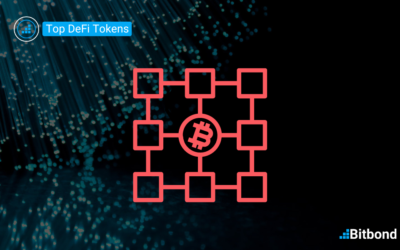Introduction
Token sales, including Initial Coin Offerings (ICOs) and Security Token Offerings (STOs), have become popular and innovative ways for businesses and organizations to raise capital. In essence, token sales involve the issuance and sale of a new cryptocurrency or token in exchange for funding. These tokens can then be traded or exchanged for other cryptocurrencies or fiat currency, providing a new way for investors to get involved in the fundraising process.
Despite some controversy and criticism surrounding token sales, they have become an important part of the fundraising landscape. In this blog post, we’ll take a comprehensive look at token sales and examine their performance and success rates compared to traditional fundraising methods. By the end of this post, you’ll have a deeper understanding of the benefits and risks of token sales and their potential impact on the future of fundraising across a wide range of industries and organizations.
A Brief History of ICOs and Token Sales
Token sales have only been around for a relatively short period of time, but they have quickly gained popularity in the fundraising landscape. The first ICO, Mastercoin, was launched in 2013 and raised over 5,000 Bitcoins (worth approximately $500,000 at the time). This success led to a surge of ICOs in 2014 and beyond, with many new startups and businesses turning to token sales as a way to raise capital.
In the early days of ICOs, there were few regulations or standards for how they should be conducted. As a result, many token sales were criticized for being overly speculative or fraudulent. However, the situation has since improved, with many countries implementing regulations to protect investors and ensure transparency in the token sale process.
Despite the challenges and controversies surrounding ICOs and token sales, many have been highly successful in raising funds for their respective projects. For example, the Ethereum ICO in 2014 raised over $18 million and helped launch the Ethereum blockchain, which has since become a major player in the cryptocurrency space. Other successful ICOs include EOS, Tezos, and Filecoin, which raised over $4 billion, $232 million, and $257 million respectively.
In addition to ICOs, Security Token Offerings (STOs) have emerged as a new way for businesses and organizations to raise capital through token sales. STOs differ from ICOs in that they are backed by tangible assets, such as company stock or real estate, and are subject to securities regulations. One noteworthy example of an STO is the Blockchain Capital Token Sale, which raised $10 million in 2017 and was one of the first STOs to be approved by the SEC.
Despite the differences between ICOs and STOs, both forms of token sales have become important tools for fundraising in the modern economy. In the next section, we’ll explore the performance and success rates of ICOs and STOs compared to traditional fundraising methods.
Examining the Success of Token Sales
As we saw in the previous section, token sales have become a popular and innovative way for businesses and organizations to raise capital. In this section, we’ll take a closer look at the success of token sales over the years.
According to data from Cryptorank, a leading provider of token sale data, the total amount of funds raised through token sales has fluctuated significantly over the years. In 2022, there were 533 token sales that raised a total of $1,606.8 million:
The data also shows that the success rate of token sales has varied widely over the years. According to Cryptorank, the success rate of token sales (i.e. the percentage of token sales that raised more than their soft cap) was 37% in 2014, but by 2022, it had fallen to just 5%.
While the overall performance of token sales can vary widely, there have been many successful token sales that have raised significant amounts of capital. For example, the EOS token sale in 2018 raised over $4 billion, making it one of the largest token sales of all time. Other successful token sales include Telegram, which raised $1.7 billion in 2018, and the Filecoin token sale, which raised $257 million in 2017.
Token sales offer several benefits over traditional fundraising methods. For one, they provide a new way for investors to get involved in the cryptocurrency market and potentially earn significant returns on their investments. Additionally, token sales can be a faster and more efficient way to raise capital compared to traditional fundraising methods, such as venture capital.
However, token sales also come with risks and challenges. Regulatory concerns, market volatility, and fraudulent activity are just a few of the potential pitfalls that businesses and investors must navigate when participating in token sales.
Overall, while the performance of token sales can vary widely, they have become an important tool for fundraising in the modern economy. In the next section, we’ll take a closer look at some of the risks and challenges associated with token sales.
Risks and Challenges of Token Sales
While token sales offer many benefits for businesses and investors, there are also several risks and challenges associated with them. In this section, we’ll take a closer look at some of the main risks and challenges that businesses and investors must navigate when participating in token sales.

Regulatory Concerns: One of the biggest risks associated with token sales is regulatory uncertainty. The legal status of tokens can vary depending on the jurisdiction, and regulations surrounding token sales are still evolving. This can make it difficult for businesses and investors to navigate the legal landscape and ensure compliance with all relevant regulations.
Market Volatility: Another risk associated with token sales is market volatility. Tokens can be highly speculative, and their value can fluctuate widely based on market conditions. This can make it difficult for businesses and investors to accurately predict the future value of tokens and make informed investment decisions.
Fraudulent Activity: Another challenge associated with token sales is the risk of fraudulent activity. Due to the decentralized and unregulated nature of the cryptocurrency market, there have been cases of fraudulent token sales, where businesses have raised funds without delivering on their promises.
Lack of Liquidity: Another challenge associated with token sales is the lack of liquidity. Tokens can be difficult to sell, especially if they are not listed on major exchanges. This can make it difficult for investors to exit their positions and realize their returns.
Technical Challenges: Finally, participating in token sales can also pose technical challenges for businesses and investors. The process of creating and managing tokens can be complex, and businesses must ensure that their tokens are secure and accessible to investors.
Overall, while token sales offer many benefits, they also come with risks and challenges that must be carefully considered by businesses and investors. In the next section, we’ll wrap up this blog post with a summary of our findings and some concluding thoughts.
Conclusion
In this blog post, we’ve explored the world of token sales and their role in modern fundraising. We started by discussing the benefits of token sales, including their potential for significant returns, speed of fundraising, and accessibility to a global investor base.
Next, we examined the history of token sales and saw how they’ve evolved over the years. We also looked at some notable examples of successful token sales and saw how they’ve raised significant amounts of capital.
We then examined the success of token sales over the years, using data from Cryptorank. We saw that while the market for token sales has fluctuated, there have been many successful token sales that have raised significant amounts of capital.
We also explored the risks and challenges associated with token sales, including regulatory concerns, market volatility, and fraudulent activity. While these risks must be carefully considered by businesses and investors, we believe that token sales offer many benefits and have become an important tool for fundraising in the modern economy.
Overall, while the world of token sales can be complex and challenging, we believe that businesses and investors who carefully navigate this landscape can benefit greatly from the opportunities that token sales offer.
Thank you for reading this blog post, and we hope that it has provided you with a deeper understanding of token sales and their role in modern fundraising.




